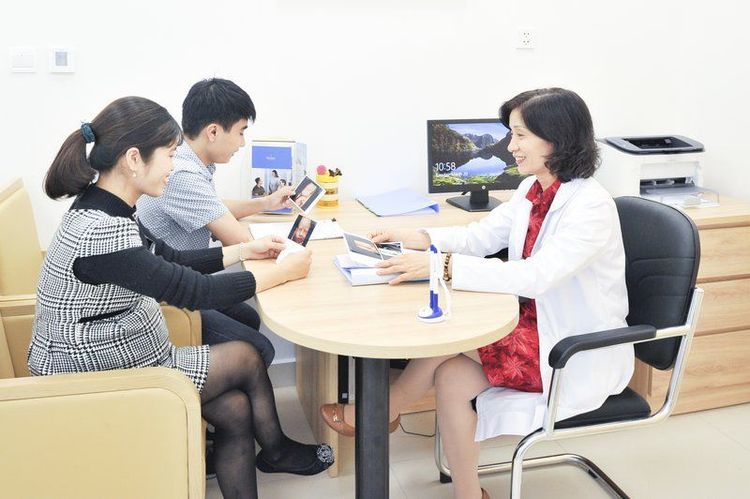This is an automatically translated article.
Antiallergic drugs are medicines intended to relieve uncomfortable symptoms such as stuffy nose, runny nose, itchy eyes or skin rashes. In general, these drugs are relatively benign for the majority of subjects. However, the safety of using antiallergic drugs in pregnant and lactating women should be carefully considered.
1. Use of anti-allergic drugs in pregnant women
Allergy symptoms are the body's natural response to allergens from the outside environment, usually in the air. This is a very common condition for everyone, not just pregnant women. However, conditions with an allergic pathogenesis may affect up to one-fifth to one-third of women of childbearing age. Therefore, the choice of allergy medicine for pregnant women with allergies is also a common problem.
In the group of first-generation antihistamines, this includes drugs such as brompheniramine, chlorpheniramine, dimenhydrinate, diphenhydramine, doxylamine, hydroxyzine and pheniramine. These drugs were first prepared and have been used for a long time, showing high safety in pregnant women with allergies. Nearly all of the first-generation antihistamines have been reported with no evidence of an increased risk to the fetus when used at any time during all three trimesters. All infants born to mothers who received anti-allergic drugs during pregnancy have not been associated with associated birth defects.

Phụ nữ có thai tuyệt đối không tự ý sử dụng thuốc
Then, second generation antihistamines were born and are very popular because they overcome the side effect of causing drowsiness of the first generation antihistamines. Examples of second-generation antihistamines are cetirizine, desloratadine, fexofenadine, and loratadine. For the safety of second-generation antihistamines in pregnancy, there is also good evidence. Specifically, studies did not find any correlation between the rate of birth defects in infants and mothers who took anti-allergy medication at any time during pregnancy. However, compared with first-generation antihistamines, the long-term follow-up of second-generation antihistamines is more limited; Accordingly, the classic drugs are still preferred and accepted for side effects affecting the central nervous system.
2. Use of antiallergic drugs in breastfeeding women
Most of the drugs in the first generation antihistamines have been shown to be either not excreted in human milk or present in very small amounts. Accordingly, there are some infants who have a side effect when taking the drug, which is drowsiness, but at a low rate. Absolutely no serious reactions have been reported in infants that required medical intervention while breastfeeding and taking classic anti-allergy medications.
Similarly, the number of studies is very limited, early data shows that, if the mother takes second-generation antihistamines, the concentration of the drug excreted in milk into the baby's body is also many times lower. compared with therapeutic doses in neonates. Thus, based on this level of exposure, the likelihood of adverse events in a young child from a nursing woman taking antiallergic drugs is very low.

Phụ nữ cho con bú cần tham khảo ý kiến bác sĩ trước khi dùng thuốc
3. What should be monitored when taking anti-allergic drugs in pregnant and lactating women?
Although the evidence suggests that the use of antiallergic drugs in pregnancy and lactation is relatively safe, these subjects still need to be closely monitored during drug use.
The most common side effect is drowsiness; however, this is not harmful if you are not operating a vehicle, machinery or driving a vehicle. However, this sedation effect is sometimes detrimental if mothers have to work hard to take care of their children without help. Sometimes neglect and lack of concentration are dangerous for children.
In addition, similar to other subjects when taking anti-allergic drugs, when there are serious abnormalities, they must stop taking the drug and go to the hospital immediately such as fast or irregular heartbeat, convulsions, hallucinations, difficulty breathing...
In summary, although allergies are not in most cases a dangerous condition, these unpleasant symptoms will be greatly reduced with the use of anti-allergic drugs. The safety of the drug is largely guaranteed, even for pregnant and lactating women. However, because it only plays a role in treating symptoms, the drug should be used appropriately according to the indications and stopped when the condition has improved in order to minimize the possible risks for infants and children. small.

Trước khi sử dụng thuốc, hãy hỏi ý kiến bác sĩ chuyên khoa
At Vinmec International General Hospital, there is a package maternity service as a solution to help pregnant women feel secure because of the companionship of the medical team throughout the pregnancy. When choosing Maternity Package, pregnant women can:
The pregnancy process is monitored by a team of qualified doctors Regular check-up, early detection of abnormalities Maternity package helps to facilitate the process. birthing process Newborns receive comprehensive care
Please dial HOTLINE for more information or register for an appointment HERE. Download MyVinmec app to make appointments faster and to manage your bookings easily.
References: webmd.com, ncbi.nlm.nih.gov, gpnotebook.com













